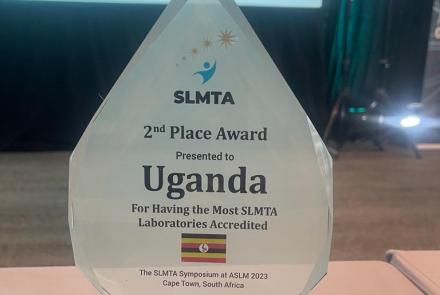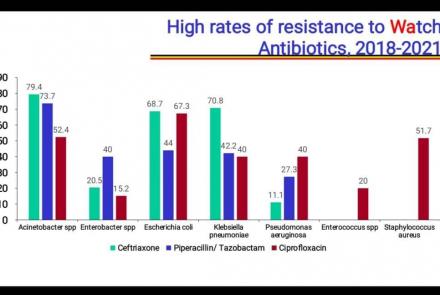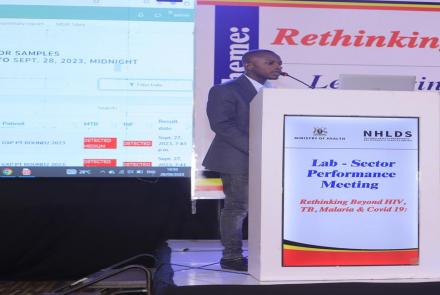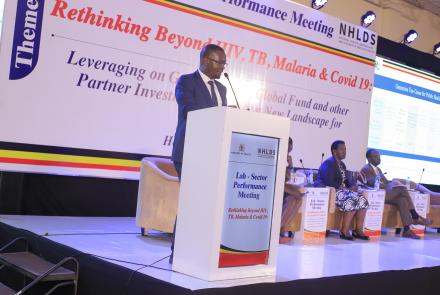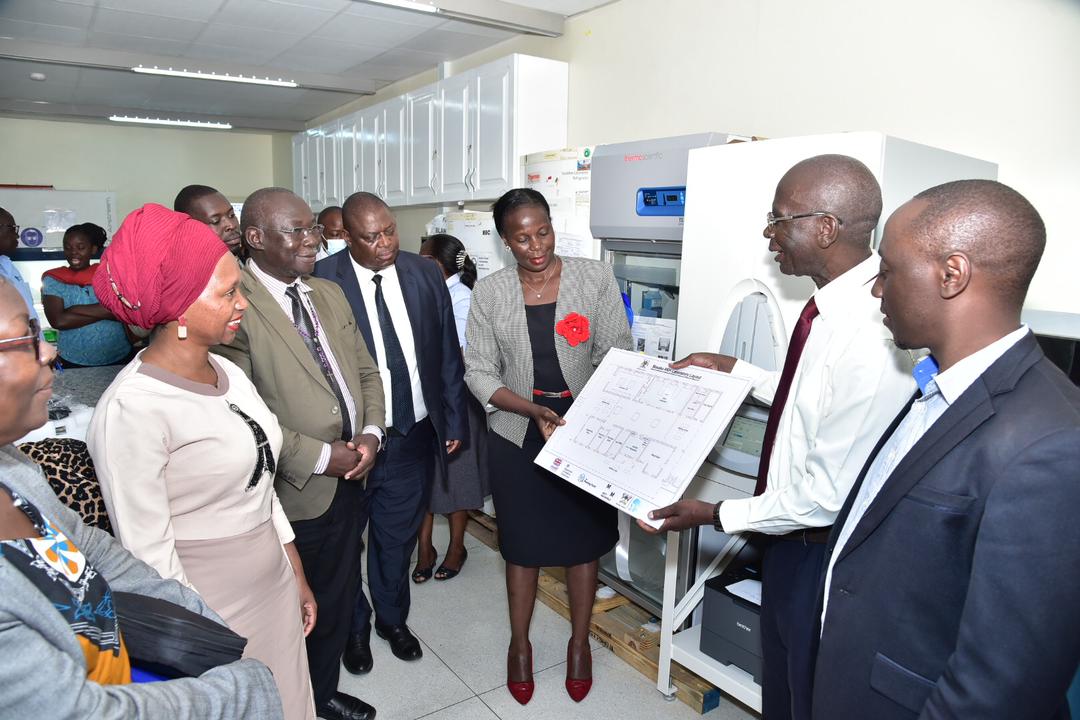
HANDOVER OF RENOVATED MASAKA RRH MICROBIOLOGY LAB
Masaka RRH- 24 Jan 2023
The Infectious Disease Institute with support from Fleming Fund, renovated three Microbiology Laboratories to meet the biosafety and biosecurity standards at Regional Referral Hospitals of Masaka, Lira, and Mbarara University of Science and Technology.
The refurbished sites were handed over to Ministry of Health, Commissioner NHLDS, Dr. Susan Nabadda,
"I would like you to join me in congratulating the Commissioner and her staff in the department, and the whole Laboratory fraternity in the country for the work well done in management of the Ebola outbreak, COvid-19 and for improving Laboratory services for the people of Uganda. I want to thank H.E Yoweri Kaguta Museveni, the President of the Republic of Uganda, for embracing scientific approach to public health management. I thank all our Partners and more especially CDC and other United States Government Agencies for walking with us along the path of strengthening Health Laboratory system in Uganda" Said Hon. Margaret Mahanga.
The project with technical support from the academia and the three line ministries also developed the microbiology techniques and practices In-service training curriculum for laboratory personnel. The curriculum was rolled out through the integrated microbiology support centre (IMSC) and saw over ---------- laboratory staff capacity enhanced.
Laboratorians received targeted training packages as summarized below;
-
32/40 received LQMS training on ISO 15189 & ISO 17040
-
23/15 national Trainer of Trainers (TOT) refresher training in basic microbiology techniques to rollout the training.
-
38/40 trained in basic microbiology techniques.
-
21/40 trained in Biosafety and Biosecurity techniques
-
24/40 trained in AMR data management including WHONET
Up to 55 standard operating procedures (SOPs) on pre-analytical and analytical microbiology procedures are in use at 12 human surveillance sites to streamline generation of high quality AMR data. Implementation of SOPs continues to support efforts of generation of quality assured AMR data across the surveillance sites.


